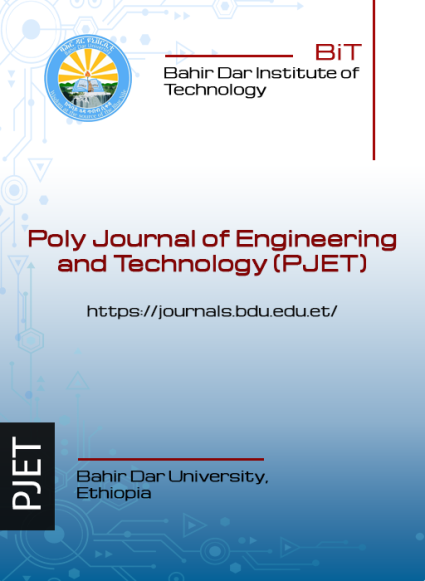Performance evaluation of Synthetic and Bio-organic coagulants for removal of Natural Organic Matter from Drinking Water
Abstract
Surface water sources contain a high amount of natural organic matter (NOM), which results from natural and anthropogenic activities. The NOM could react with chlorine to produce disinfection by-products (DBPs) that pose public health risks and are environmentally unfriendly. This study examined the effectiveness of synthetic and bio-coagulants for the removal of NOM and the associated turbidity from raw drinking water. Water samples were collected from Legedadi water treatment plant during the months of April (dry season) and July (Wet seasons) 2021. Jar test was performed to test the coagulants' effectiveness for removing turbidity and microbial community. The results revealed that the optimum coagulant doses were 70 & 30 mg/LforPACl, 110 & 90 mg/Lfor Aluminum sulfate, and 140 & 120 mg/Lfor MOS for the dry and wet seasons, respectively. Enhanced coagulation experiments were carried out to evaluate the efficiency of the coagulants in removing the TOC and turbidity. The enhanced coagulation removal of TOC and UV254 followed an order of PACl> Aluminum Sulfate > MOS. Coagulant dose, type and pH, have significant(p< 0.05) effect on TOC and turbidity removal from the raw water. The result obtained in this study indicated that synthetic and bio-organic coagulants can be viable options in thetreatment of water to remove NOM and reduce the formation of DBPs.
Copyright (c) 2024 Poly Journal of Engineering and Technology (PJET)

This work is licensed under a Creative Commons Attribution-ShareAlike 4.0 International License.


